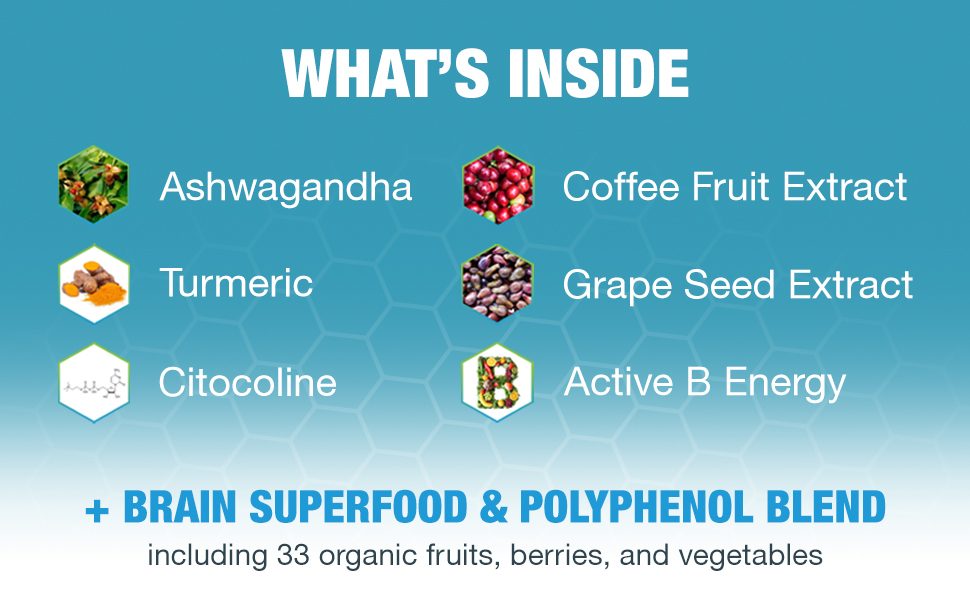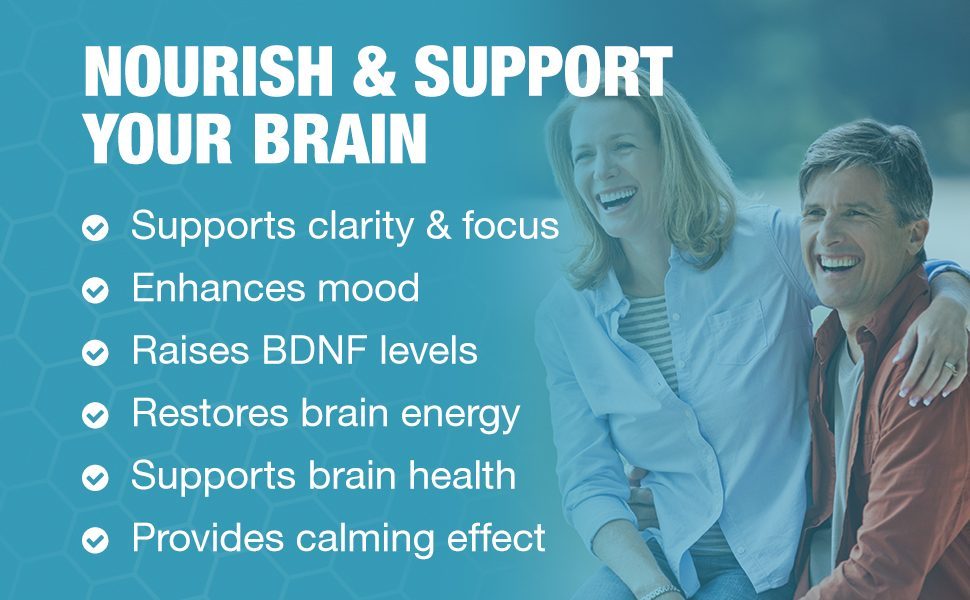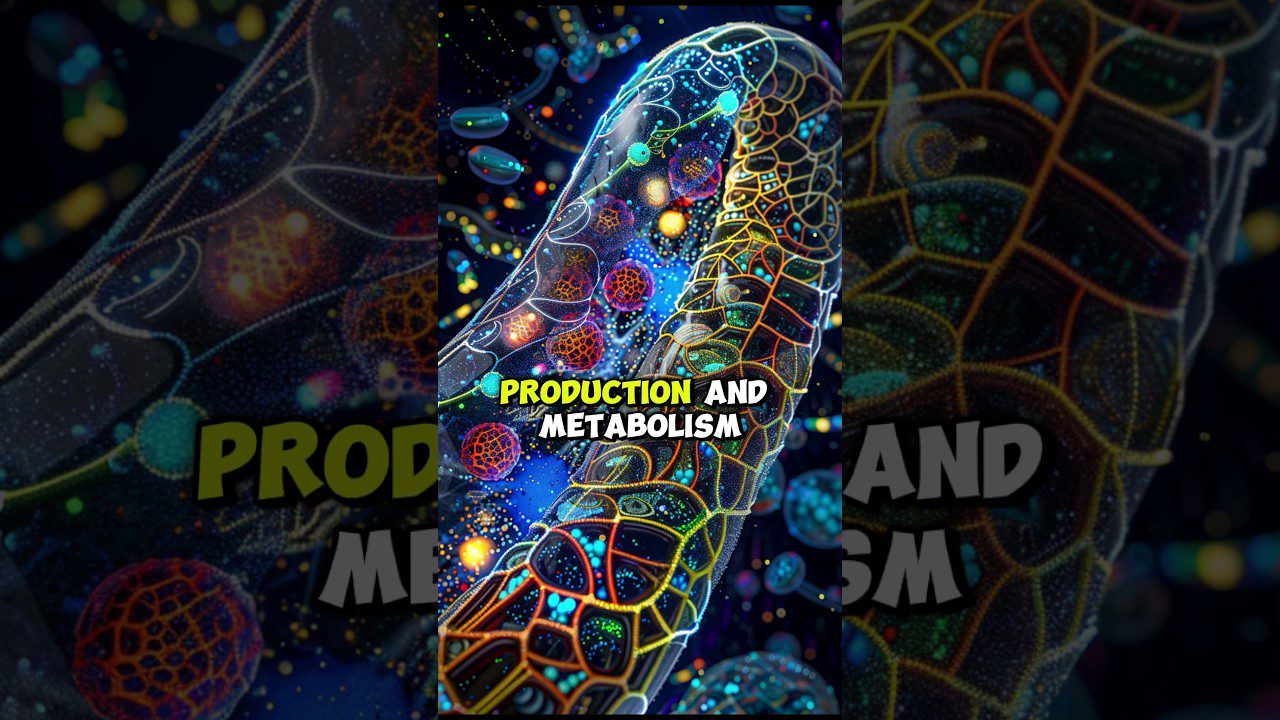
Embracing the Retired Mind: Strategies for Cognitive Resilience and Adaptability
Introduction:
As we get older, keeping our minds sharp and flexible can seem like a huge task. Age-related cognitive decline is a fear that hangs over many of our hopes and dreams, making us wonder if our minds will eventually get worse with age.
However, what if I told you that the key to maintaining brain health throughout life is not a magic pill or a lost fountain of youth, but the colorful chemicals found in plants called polyphenols? Many tasty and easily accessible foods contain these powerful antioxidants. They have the amazing ability to feed and protect the brain, making it stronger and more flexible.
Discover the potential benefits of polyphenols and how to effortlessly integrate them into a brain-healthy, holistic lifestyle with this comprehensive guide. By learning about the science behind these plant-based miracles and coming up with easy ways to use them every day, you’ll find a wealth of ideas and inspiration that will help you clear your mind and reach your full cognitive potential.
Get ready to be amazed as you learn about how polyphenols, exercise, mental tasks, social interaction, and stress management can all work together to create a symphony of brain-boosting benefits. This guide will give you the tools to take charge of your brain’s future and create a future full of endless possibilities, whether you want to keep your current level of cognitive function or reach new heights of mental ability.
Let’s get started. One tasty, polyphenol-rich bite at a time, we’ll find the fountain of life for your mind.
Chapter 1: The Retired Mind: How to Get the Most Out of Your Brainpower
Retirement doesn’t have to mean cognitive decline. In fact, this new phase of life can allow you to grow, learn, and think more clearly than ever before. Many people, though, worry about their memory, focus, and mental sharpness as they move into this new part of their lives. In this first chapter, we’ll explore the amazing potential of the “retired mind” and the steps you can take to unlock your brain’s full potential.
One important way to maintain and improve brain performance is through the consumption of polyphenols. These powerful plant-based chemicals are known for their ability to increase BDNF, a protein that supports neuroplasticity, learning, and memory. Research has shown that eating plenty of polyphenol-rich foods, like berries, dark chocolate, green tea, and ginger, can help keep your brain healthy and support cognitive function as you age.
For example, blueberries contain a potent polyphenol called anthocyanin, which has been linked to improved memory and cognitive flexibility in older adults. Similarly, studies have found that the curcumin in turmeric can increase BDNF levels and potentially reduce the risk of Alzheimer’s disease. By intentionally incorporating these colorful, polyphenol-dense foods into your daily diet, you can give your brain the nutrients it needs to grow, adapt, and thrive.
Chapter 2: Foods That Will Make Your Mind Sharper
Proper nutrition is the foundation for brain health. In this chapter, we’ll explore the specific nutrients and eating habits that can support cognitive function as you get older. We’ll dive into the science behind brain-boosting foods, like omega-3s and vitamins, and provide practical tips for building a nutrient-rich diet.
Among the most important brain-supportive nutrients are polyphenols. These plant-based compounds are not only powerful antioxidants, but they also play a crucial role in maintaining and improving brain health. Researchers have found that polyphenols can enhance neuron-to-neuron communication, fight inflammation, and even stimulate the growth of new brain cells.
For instance, studies have linked the resveratrol found in red berries to improved memory and brain function in older adults. Similarly, the catechins in green tea have been shown to enhance executive function, processing speed, and attention. Being intentional about incorporating a variety of polyphenol-rich foods into your meals and snacks can give your brain the nourishment it needs to thrive.
Simple ways to boost your polyphenol intake include snacking on a handful of blueberries or adding cinnamon to your morning oatmeal. You can also consider taking supplements that contain polyphenol-rich extracts, such as those from green tea or pomegranates, but be sure to consult with your healthcare provider first. The key is to find ways to consistently include these powerful plant compounds in your daily life.

Chapter 3: Being Active and Brain Health
Numerous studies have demonstrated the close connection between physical activity and cognitive function. In this chapter, we’ll explore the science behind this powerful link, examining how different types of movement can nourish and protect your brain, from cardio to strength training.
But did you know that antioxidants, like polyphenols, can amplify the brain-boosting effects of exercise? Researchers have discovered that these plant-based chemicals can increase the production of BDNF, a protein that supports neuron growth and survival.
In one study, older adults who combined regular aerobic exercise with a polyphenol-rich diet, such as one high in blueberries and green tea, experienced greater improvements in memory and cognitive flexibility compared to those who only exercised or followed a polyphenol-rich diet. These findings suggest that by integrating both physical activity and polyphenol-rich foods into your daily routine, you can create a synergistic effect that keeps your brain sharp and adaptable.
Something as simple as taking a daily walk and enjoying a smoothie with berries, spinach, and chia seeds can be a powerful way to nourish your brain. By layering these brain-healthy habits, you can build a foundation that supports cognitive function for years to come.
Chapter 4: How Stimulating the Mind Can Help
Just as physical exercise is important for keeping your body healthy, mental stimulation and cognitive challenges are equally crucial for maintaining and improving cognitive function as you age. This chapter will explore the various ways you can keep your mind active and engaged, from learning new skills to playing brain-boosting games and puzzles.
Interestingly, polyphenols play a key role in supporting the brain’s ability to adapt and change, a process known as neuroplasticity. Studies have demonstrated that these plant-derived compounds can aid in the growth and survival of new brain cells, amplifying the benefits of mental stimulation and cognitive exercises.
For example, the catechins in green tea have been linked to enhanced memory, attention, and problem-solving abilities. Similarly, the flavonoids in dark chocolate have been shown to improve decision-making and cognitive flexibility. By incorporating polyphenol-rich foods into your mentally stimulating activities, you can give your brain an extra boost and maximize the cognitive benefits.
A simple way to leverage the power of polyphenols is to enjoy a cup of green tea while engaging in brain games or puzzles. You could also set a goal to learn a new language while snacking on a handful of blueberries or pomegranate seeds. By nourishing your mind in a variety of ways, you can unlock your full cognitive potential and maintain a sharp, flexible brain.
Chapter 5: Dealing with Stress and Brain Health
Managing stress is becoming increasingly important for overall health and well-being in our fast-paced, ever-changing world, and this includes brain health. This chapter will explore how stress affects cognitive function and provide you with practical strategies for keeping your mind calm and focused.
Interestingly, polyphenols can also play a role in helping your brain cope with stress. Researchers have found that these plant-based compounds are highly effective at reducing inflammation and protecting neurons, which can help mitigate the damaging effects of long-term stress.
For instance, apples and onions contain the flavonoid quercetin, which animal studies have shown can lower anxiety and improve mood. Additionally, the curcumin in ginger has demonstrated the ability to stimulate the growth of new brain cells and modulate the body’s stress response. By incorporating these polyphenol-rich foods into your stress management routine, you can provide an extra layer of protection for your brain.
To leverage the power of polyphenols, you might try sipping on chamomile tea while engaging in deep breathing or mindfulness exercises. You could also blend up a smoothie with chia seeds, spinach, and berries to give your brain a potent boost of anti-inflammatory and antioxidant compounds.
Remember that a multifaceted approach to stress management, including both dietary and lifestyle strategies, can best support your brain’s health and resilience.

Chapter 6: Why Good Sleep is Important
Let’s get ready to sleep! This chapter will provide you with practical tips to help you get the high-quality sleep your brain needs to thrive.
Polyphenols play a crucial role in maintaining healthy sleep and brain function. Scientists have found that these plant-based chemicals can protect neurons, improve sleep quality, and extend sleep duration.
For instance, studies have shown that tart cherry juice, which is rich in melatonin, can enhance sleep in older adults. Similarly, the flavonoids in chamomile tea have been found to have a calming effect on the brain, promoting better rest and sleep.
You can support your brain’s recovery during those important hours of sleep by incorporating polyphenol-rich foods and beverages into your evening routine. Enjoy a cup of chamomile tea before bed, or indulge in a small bowl of berries as a healthy snack that will nourish your brain.
Remember that your brain requires regular, high-quality sleep to function at its best. By making sleep a priority and including polyphenol-rich foods in your daily life, you can support both your brain health and your overall well-being.
Chapter 7: Brain Supplements and Nootropics
Cognitive supplements and nootropics are gaining a lot of attention in the world of brain health. These substances claim to improve memory, focus, and mental function. However, with so many options available, it’s important to understand the role that polyphenols play in this area.
Although polyphenols may not be the first thing that comes to mind when thinking about nootropics, research has shown that these plant-based chemicals can protect neurons and enhance brain function in various ways. For instance, studies have linked the flavonoids in cocoa to improved mood, memory, and attention in older adults.
Additionally, resveratrol, found in red grapes, has been shown to support neuron growth and survival, which may help mitigate age-related cognitive decline. Curcumin, the active compound in turmeric, has demonstrated its ability to fight inflammation and protect neurons, potentially aiding in the maintenance of brain function.
When shopping for nootropics and brain supplements, it’s best to look for products that contain polyphenol-rich ingredients. For example, some supplements that support cognitive health may include extracts from green tea, blueberries, or cocoa – all natural sources of brain-boosting plant-based compounds.
However, it’s important to remember that not all supplements are created equal. Before starting a new routine, it’s crucial to consult with your healthcare provider and do thorough research to ensure you’re choosing high-quality, well-established products. Overreliance on supplements should not replace a balanced, polyphenol-rich diet and a holistic approach to brain health.
By understanding how polyphenols can enhance cognitive function, you can leverage the power of these plant-based chemicals to get the most out of any cognitive supplements or nootropics you incorporate into your regimen.
Chapter 8: Brain Exercises and Cognitive Fitness
Just as physical fitness is essential for maintaining a healthy body, cognitive fitness is crucial for keeping your mind sharp and adaptable. In this chapter, we’ll explore the various brain exercises and cognitive tasks that can help you strengthen and challenge your mental abilities.
Integrating polyphenol-rich foods into your cognitive fitness routine is a key way to maximize the benefits. Researchers have found that these plant-based compounds can improve neuroplasticity, which is the brain’s ability to change and adapt to new situations.
For example, the flavonoids in dark chocolate may help older adults improve their memory and decision-making abilities. Similarly, studies have demonstrated that the anthocyanins in blueberries can enhance cognitive flexibility and visual memory. By adding these polyphenol-rich foods to your brain fitness regimen, you can amplify the positive effects and give your mind an extra boost.
A simple way to combine cognitive exercises with polyphenol-rich foods is to enjoy a piece of dark chocolate while working on a challenging puzzle or playing a brain-stimulating game. You could also sip on a cup of green tea while learning a new skill or engaging in other mentally engaging activities.
Remember that the best approach to brain fitness involves a multifaceted perspective. By providing your brain with both physical and mental stimulation, as well as a diet rich in polyphenols, you can build a strong foundation that supports cognitive health for years to come.

Chapter 9: Maintaining Social and Brain Health
As social creatures, our relationships with others are crucial for our overall health and well-being, including our mental health. In this chapter, we’ll discuss how social interaction can benefit the brain and provide practical tips for cultivating a robust social network.
Interestingly, consuming foods high in polyphenols can also amplify the brain-boosting effects of social engagement. Researchers have found that these plant-based compounds can protect neurons and enhance social cognition and emotional well-being.
For instance, studies have linked the flavonoids in cocoa to improved social interaction and reduced feelings of loneliness in older adults. Similarly, the curcumin in turmeric has been shown to enhance mood and social behavior, potentially due to its anti-inflammatory properties.
Incorporating polyphenol-rich foods into your social activities can have a positive impact on both your mental and emotional health. Imagine enjoying a colorful, antioxidant-rich fruit salad with friends while engaging in lively conversation, or sipping on calming chamomile tea while discussing a book with your book club.
Remember that the power of social connections and polyphenol-rich nutrition work together to keep your mind strong and adaptable. By addressing both your social and nutritional needs, you can unlock the full cognitive benefits of this powerful combination.
Chapter 10: Mental Strength and Flexibility
As we get older, the ability to adapt and respond to new situations becomes increasingly important for maintaining a sharp and resilient mind. This chapter will explore the concept of cognitive resilience and provide you with strategies for developing an adaptable mindset and lifestyle.
Polyphenols are one of the key players in supporting brain resilience. Scientists have found that these plant-based compounds can help the brain cope with challenges and stressors by providing protective effects.
For instance, studies have linked the resveratrol in red berries to improved cognitive flexibility and problem-solving abilities in older adults. Similarly, the flavonoids in berries have been shown to support neuroplasticity, the brain’s capacity to form new connections and adapt to changes.
Incorporating polyphenol-rich foods into your daily routine can strengthen your brain’s resilience and adaptability. Start your day with a breakfast that includes a handful of blueberries, or enjoy a glass of red wine (in moderation) with a Mediterranean-style meal.
Remember that cognitive resilience is not just about maintaining the same level of function; it’s also about being open to change, learning new skills, and constantly challenging your brain to adapt and grow. By caring for your mind with cognitive exercises and a diet rich in polyphenols, you can develop the flexibility and adaptability needed to thrive in life’s ever-changing landscape.
Chapter 11: Caring for Others and Brain Health
Caring for a loved one can be a deeply meaningful and rewarding experience, but it can also take a significant toll on the caregiver’s mental and emotional health. This chapter will explore how you can keep your brain healthy while taking on the responsibilities of caregiving.
Polyphenols, often overlooked in this context, play a crucial role in supporting caregiver well-being. Researchers have found that these plant-based compounds are highly effective at reducing inflammation and protecting neurons, which can help ease the mental and emotional strains that come with caregiving.
One example is the curcumin in turmeric, which has been shown to have a calming effect on the brain. This may make caregiver burnout and cognitive decline less likely. Similarly, studies have linked the flavonoids in dark chocolate to improved mood and reduced levels of anxiety and depression.
Incorporating polyphenol-rich foods and beverages into your daily routine can help protect and nourish your brain as you navigate the stresses of caregiving. Take a break and enjoy a cup of green tea, or snack on a handful of berries during a parent-support group meeting.
Remember that the care you provide to others is just as important as your own brain health. By giving your mind the nutrients it needs through a polyphenol-rich diet and cognitive-enhancing activities, you can continue to be an effective and caring caregiver.

Get your free copy of our eBook “How to Achieve Vibrant Health: Magnesium and the Journey to Wholeness” just click on download here!
Chapter 12: Health Care Workers’ Role
As frontline providers of healthcare, doctors, nurses, and other medical professionals play a critical role in supporting brain health. From general practitioners to neurologists, these individuals are uniquely positioned to help people maintain and improve cognitive function.
In this chapter, we’ll explore how healthcare workers can leverage their expertise to educate patients about the importance of polyphenols and other brain-nourishing nutrients. By sharing the latest research and providing practical dietary recommendations, these professionals can empower individuals to take an active role in protecting their cognitive abilities.
Healthcare workers can also model healthy brain habits themselves, incorporating polyphenol-rich foods and cognitive-enhancing activities into their own daily routines. This not only benefits their personal well-being but also allows them to authentically share their experiences and inspire their patients to do the same.
Furthermore, healthcare providers can advocate for the inclusion of polyphenol-rich foods and brain-healthy lifestyle interventions within the broader healthcare system. By championing these evidence-based approaches, they can help ensure that patients have access to the resources and support they need to maintain cognitive fitness throughout their lives.
By recognizing the pivotal role they play in promoting brain health, healthcare workers can become powerful allies in the effort to empower individuals to take charge of their cognitive futures, one polyphenol-rich bite at a time.

Chapter 13: Making a Life That’s Good for Your Brain
Creating a lifestyle that supports optimal brain health is a multifaceted endeavor, and this chapter will provide you with a comprehensive framework for doing just that. We’ll explore the key elements that, when woven together, can help you build a life that nourishes your cognitive abilities.
At the heart of this framework is the incorporation of polyphenol-rich foods. As we’ve discussed throughout this book, these plant-based compounds play a crucial role in protecting neurons, enhancing neuroplasticity, and supporting overall brain function. By making a concerted effort to include a variety of polyphenol-rich foods in your daily diet, you can lay a strong foundation for cognitive health.
But a brain-healthy lifestyle goes beyond just nutrition. It also encompasses regular physical activity, cognitive stimulation, stress management, and social engagement. By addressing these various domains, you can create a synergistic effect that supports your brain’s resilience and adaptability.
For example, pairing a polyphenol-rich smoothie with a daily brisk walk can provide your brain with both nutritional and physical nourishment. Challenging your mind by learning a new skill, such as a musical instrument or a new language, while sipping on green tea can amplify the benefits of cognitive stimulation.
Integrating stress management techniques, like meditation or deep breathing, alongside the consumption of anti-inflammatory polyphenols, such as those found in turmeric or ginger, can help your brain better cope with life’s inevitable challenges. And fostering meaningful social connections, whether through community groups or regular gatherings with loved ones, can further support your brain’s health and emotional well-being.
The key is to take a holistic approach, weaving together these various brain-supportive elements into a cohesive lifestyle. By making gradual, sustainable changes and consistently incorporating polyphenol-rich foods, you can create a life that not only protects your cognitive abilities but also allows you to thrive in the years to come.
Remember, building a brain-healthy lifestyle is a journey, not a destination. Stay curious, experiment, and find the combination of habits and behaviors that work best for you and your unique needs. With dedication and persistence, you can create a life that is truly good for your brain.
Chapter 14: Keeping up a Brain-Healthy Lifestyle
Maintaining a brain-healthy lifestyle is an ongoing process that requires commitment, flexibility, and a willingness to adapt over time. In this final chapter, we’ll explore strategies for incorporating these cognitive-enhancing habits and behaviors into your daily life, even as circumstances and priorities shift.
One of the keys to long-term success is finding ways to make brain-healthy choices enjoyable and sustainable. This might mean experimenting with new polyphenol-rich recipes, discovering fun and engaging cognitive exercises, or exploring physical activities that you genuinely look forward to.
It’s also important to be adaptable and willing to make adjustments as needed. Your brain-healthy routine may need to evolve as you move through different life stages, face new challenges, or simply discover new preferences and interests. Embrace these changes as opportunities to keep your brain stimulated and engaged.
Enlisting the support of loved ones or joining a community of like-minded individuals can also help you stay motivated and accountable. Sharing your brain-healthy journey with others can provide encouragement, inspiration, and a sense of camaraderie that can make the process more enjoyable and sustainable.
Remember, creating a brain-healthy lifestyle is not about perfection, but rather about cultivating a mindset of lifelong learning and self-care. By consistently incorporating polyphenol-rich foods, engaging in cognitive exercises, and prioritizing holistic well-being, you can set yourself up for a future filled with endless cognitive possibilities.

Chapter 15: Summary and Main Points
In this comprehensive guide, we have explored the remarkable potential of the “retired mind” and the powerful role that polyphenols play in supporting cognitive health and resilience throughout the aging process. Let’s summarize the key takeaways from our journey:
Polyphenols, the remarkable plant-based compounds found in a variety of foods, are essential for maintaining and improving brain function. These antioxidants can enhance neuroplasticity, increase BDNF production, and protect neurons from age-related decline.
Incorporating a diverse array of polyphenol-rich foods, such as berries, dark chocolate, green tea, and turmeric, into your daily diet can provide your brain with the nourishment it needs to thrive.
Pairing polyphenol-rich nutrition with other brain-healthy lifestyle habits, such as physical activity, cognitive stimulation, stress management, and social engagement, creates a synergistic effect that amplifies the benefits for your cognitive well-being.
Embracing a flexible, adaptable mindset and being willing to experiment with new brain-healthy habits can help you maintain a lifelong commitment to cognitive fitness, even as your needs and circumstances evolve over time.
By empowering yourself with the knowledge and tools provided in this guide, you can take charge of your cognitive future and create a life that is truly good for your brain, no matter what stage of life you’re in.
Remember, the key to unlocking the full potential of the “retired mind” lies in the colorful, polyphenol-rich world of plant-based nutrition. Embrace this knowledge, and let it guide you on a journey of cognitive resilience and endless possibilities.
NeuroActiv6
I came upon a great product that helped my dad with his brain fog and he says, that is has revitalized his whole day. – let me tell you a little about it!
NeuroActiv6 Review: A Comprehensive Look at the Brain-Boosting Superfood Powder
NeuroActiv6 is a multi-nutrient powder designed to promote brain health and cognitive function.[1] It boasts a unique blend of polyphenols, nootropics, and bio-active ingredients that work together to enhance neural communication, leading to improved focus, clarity, and mood.
Key Features:
- Science-backed ingredients: NeuroActiv6 contains trademarked ingredients backed by clinical research, ensuring its effectiveness in providing natural, caffeine-free brain energy.[1]
- Rich in polyphenols: A full daily serving of fruit provides a high dose of polyphenols, which are associated with improved cognitive function.[1]
- Dietary friendly: Suitable for vegetarians, vegans, and those following Keto, gluten-free, dairy-free, soy-free, synthetic folic acid-free, non-GMO, or low-carb diets.[1]
- Delicious flavor: The natural berry flavor makes it a tasty and enjoyable way to boost your brainpower.

Benefits:
- Enhanced cognitive function: Improved memory, focus, and clarity.
- Reduced anxiousness, fatigue, and brain fog: Promotes a calm and focused state of mind.
- Supports overall brain health: Provides essential nutrients for optimal brain function.[1]
- Convenient and easy to use: Simply mix with water or your favorite beverage.
Overall Impression:
NeuroActiv6 appears to be a promising brain-boosting supplement with a unique blend of ingredients and a focus on natural, science-backed solutions.
Recommendation:
If you are looking for a comprehensive brain-boosting supplement with a focus on natural ingredients and are willing to invest in a premium product, NeuroActiv6 may be worth trying. However, it’s always recommended to consult with your healthcare provider before starting any new supplement, especially if you have any underlying health conditions.
Disclaimer:
This review is based on the information available on the NeuroActiv6 website and other publicly available sources. It is not intended to be a substitute for professional medical advice. Always consult with your healthcare provider before starting any new supplement.

FAQs:
Q1. How many of each polyphenol-rich food should I try to eat every day?
A1. The suggested amount varies depending on factors such as age, gender, and overall health. Try to eat about one to two cups of berries, one to two ounces of dark chocolate, one to two cups of green tea, and one to two teaspoons of turmeric every day. Talk to your doctor to find out how much polyphenol you should be eating based on your specific needs.
Q2. Should I consume whole foods or take polyphenol supplements?
A2. Of course, polyphenol pills are a quick and easy way to increase your intake, but whole foods that are high in polyphenols are usually better. There is a wide range of healthy chemicals in these foods that work together to support brain health. While supplements may be beneficial, they should not replace a healthy, polyphenol-rich diet.
Q3. How long does it take for adding more polyphenols to my food to start helping my brain?
A3. The time frame can change because polyphenols’ benefits for brain health depend on where you start, your age, and your overall health. Some studies have shown that increasing the polyphenol diet can improve brain function within a few weeks or months, while others say it could take up to a year to see more noticeable changes. Be patient and consistent, and write down any small changes that you notice in your memory, focus, and general brain function.
Q4. Can polyphenols help stop or slow the growth of dementia or the cognitive decline that comes with getting older?
A4. There is increasing evidence that polyphenols may help protect the brain and lower the risk of Alzheimer’s disease and other forms of dementia that come with age. However, further research is necessary to fully comprehend the magnitude of these benefits. It’s a good idea to incorporate polyphenol-rich foods into your diet as part of a comprehensive approach to brain health, but it shouldn’t be considered a fix or prevention method in isolation. Talk to your healthcare expert to get personalized advice.
Q5. Are there any possible side effects or drug issues I should be aware of when I eat or take supplements that are high in polyphenols?
A5. Small amounts of polyphenols are typically well-accepted by the body. But high-dose vitamins might not work right with some medicines or cause side effects, especially for people with certain health problems. It’s important to talk to your doctor about taking polyphenol vitamins. They can figure out what you need, and if there are any risks or reasons, you shouldn’t accept them.
For some more Resources for you to look at on the subject follow these links.
- Polyphenols and Their Impact on the Prevention of Neurodegenerative Diseases and Development – MDPI
- Polyphenols and brain health | OCL – Oilseeds and fats, Crops and Lipids
- Impact of Gut Microbiota in Brain Ageing: Polyphenols as Beneficial Modulators – MDPI
Key takeaways:
- Polyphenols are powerful plant-based compounds that play a crucial role in protecting neurons, enhancing neuroplasticity, and supporting overall brain function.[1][2][3]
- Incorporating polyphenol-rich foods like berries, dark chocolate, green tea, and turmeric into your daily diet can nourish your brain and support cognitive function.[1][2]
- Combining polyphenol-rich nutrition with other brain-healthy habits such as physical activity, cognitive stimulation, stress management, and social engagement amplifies the benefits for your cognitive well-being.
- Embracing a flexible, adaptable mindset and being willing to experiment with new brain-healthy habits can help you maintain a lifelong commitment to cognitive fitness.
- Empowering yourself with knowledge and tools can help you take charge of your cognitive future and create a life that is truly good for your brain.
Disclaimer:
This summary is based on the information provided at the time of writing the eBook. For the most up-to-date information on polyphenols and brain health, please consult with a healthcare professional or reliable online resource.
Get your free copy of our eBook “How to Achieve Vibrant Health: Magnesium and the Journey to Wholeness” just click on download here!
AFFILIATE DISCLAIMER: I earn from qualifying purchases. This means that when you click on the links provided and make a purchase, I may receive a commission at no additional cost to you.
Thank you for reading this article we hope you have found it beneficial. Your feedback and questions are greatly appreciated, as they help us improve and provide the information you need. Please feel free to share your thoughts or ask any questions by leaving a comment or emailing us. We look forward to hearing from you!
*These statements have not been evaluated by the Food and Drug Administration. This product is not intended to diagnose, treat, cure or prevent any disease.
The content provided on this site is for informational purposes only, and is not a substitute for medical advice from your physician or other medical professionals. The information here should not be used for diagnosing, treating disease or health-related issues, or prescribing of medications. Please read all product documentation carefully. Contact your regular health care practitioner if you have or suspect having a medical problem, before using our products.
Warning: Our product is not for use by children under the age of 18 or pregnant or nursing women. Always check with a physician before taking any supplement.
FTC Legal Disclaimer: Results may vary, testimonials are not intended to be representative of typical results. The testimonials showcased here are real, and each person has used our product. However, these results are not be understood as average or typical results, as they portray what the best and most successful clients have accomplished.







